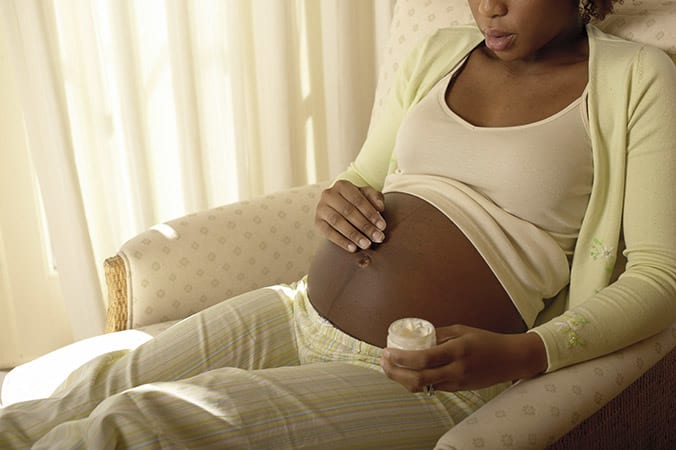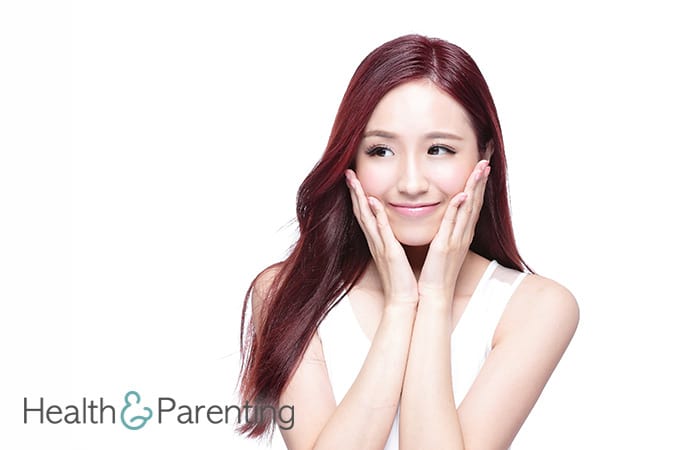Pregnancy seems to affect almost every part of your body, and the skin is no exception. Skin changes during pregnancy vary between women, so you may not experience all of the potential changes. You have probably heard of the ‘pregnancy glow’ that some women get, but you may not be familiar with all the changes on this list:
Stretch marks
Stretch marks are exactly what they sound like, marks left by your skin stretching rapidly during pregnancy. They most commonly appear towards the end of the pregnancy, and are usually located on the bump, breasts and thighs.
Only one in 10 women avoid stretch marks, so the chances are, you’re going to get at least a couple. Stretch marks are hereditary, and it comes down to whether they run in your family, rather than how much money you spend on miracle creams and lotions. Stretch marks will fade after the delivery, as your body return to its normal shape.
Skin darkening
The increased hormones of pregnancy, can cause an increase in pigmentation. You may find that you are covered in blotches or patches of darkened skin. For some women, these blotches appear on the face, this condition is known as the ‘mask of pregnancy’. You may also notice that your moles, freckles and even labia appear darker during pregnancy. This is caused by hormones, and should return to normal after the birth.
Linea Nigra
This is the mysterious dark line that runs down the middle of your abdomen during pregnancy. Around three quarters of all pregnant women find that this line appears on their bump. It usually appears during the second trimester, and will disappear in the months following the birth.
Acne
It is hard to predict whether you will suffer from breakouts during pregnancy. Some women find that their usually problem-skin becomes clean and clean during pregnancy, and others who have never suffered from acne, suddenly find they are plagued by a spot-ridden complexion. Wash your face every morning and night, and avoid putting harsh chemicals on your skin. Your skin should return to normal after the birth, once your hormones shrink back to their normal levels.
Pregnancy glow
You may not be able to see it yourself, but the increased blood flowing through your veins can leave your skin looking brighter than usual. You may find you feel oilier than usual as your hormones go into overdrive, and this can add to your glow.
Written by Fiona (@Fiona_Peacock), mother, writer and lover of all things baby related.
This information is not intended to replace the advice of a trained medical doctor. Health & Parenting Ltd disclaims any liability for the decisions you make based on this information, which is provided to you on a general information basis only and not as a substitute for personalized medical advice. All contents copyright © Health & Parenting Ltd 2018. All rights reserved.











